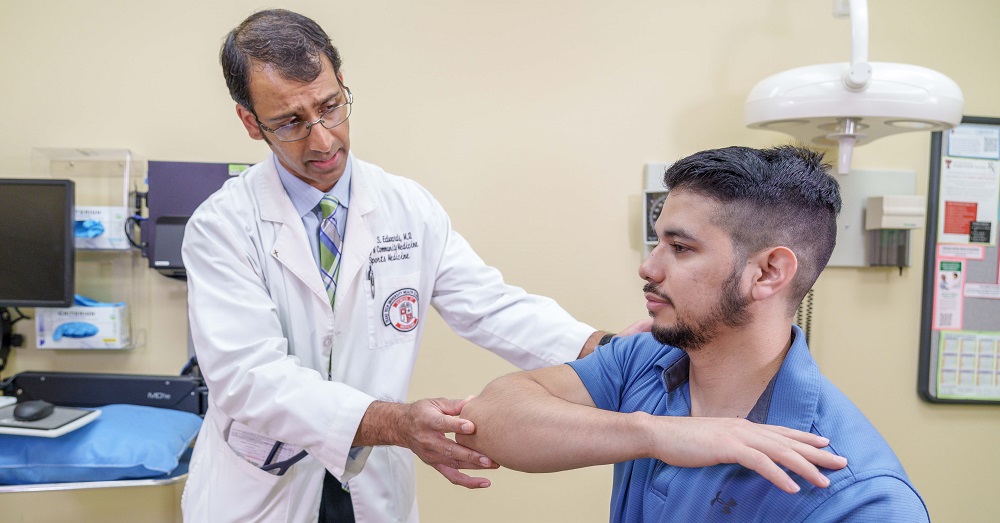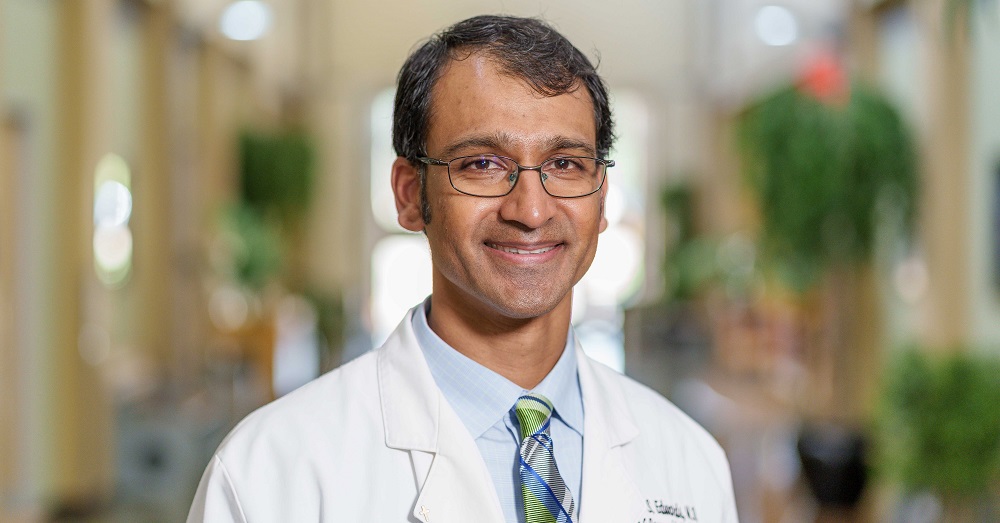Feeling Tired? Don’t Consume More Caffeine or Take Study Drugs

David Edwards, M.D.
Everyone needs adequate sleep to function mentally and physically at their best. David Edwards, M.D., a family medicine physician at Texas Tech Physicians, said without a good night’s rest, college students are more likely to rely on caffeine and other substances to get them through the day.
“Sleep is very important, particularly for the average college student who is spending more time than usual studying, learning new information and oftentimes exercising vigorously,” Edwards said. “Sleep helps us recharge physically and mentally.”
According to the American Academy of Sleep Medicine, the average adult needs at least seven hours of sleep a night. Research data shows that college students only get about six hours of sleep a night. Dr. Edwards, who is also the medical director of the Texas Tech University Student Wellness Center, noted that a lack of sleep can affect a student’s ability to perform.
“Sleep deprivation is associated with mood changes, decreased attention, decreased ability to concentrate, and sadly, it can affect a student’s GPA.”
As reported by the U.S. Food and Drug Administration (FDA), roughly 80% of U.S. adults use caffeine daily. Edwards explained that a moderate amount can be helpful to stay alert, but too much can be dangerous.
“Caffeine does help maintain focus and attention,” Edwards said. “It is relatively safe when used in safe dosages. For example, one to two cups of coffee or tea daily. We do begin to worry when people are getting excessive doses of caffeine through energy drinks, or pre-workout supplements.”
The FDA reports that 400 milligrams should be the maximum amount of caffeine a person consumes in a single day. That is equivalent to about four or five cups of coffee in a day.
“The consequences of excessive caffeine use include withdrawal headaches when they’re not getting it regularly, chest pain, palpitations, racing of the heart and anxiety.”
Adderall and other study drugs have gained popularity on college campuses, and more and more students are taking them to study and stay alert. Edwards explained why these study drugs fall under a far more dangerous category than caffeine.

David Edwards, M.D.
“In general, when I think of study drugs, I think about a pharmaceutical medication that is used for non-medicinal purposes,” Edwards said. “Whether that is to get high, to maintain focus and study or to prepare for finals, that’s really a more dangerous category.”
The college prescription drug study reported by Campus Drug Prevention indicates that one in seven college or postgraduate students have used a study drug for non-medicinal purposes. Edwards explained that there are more serious risks that come with taking study drugs compared to consuming caffeine.
“When we think about study drugs, those risks are much more serious,” Edwards said. “Those risks include psychosis, behavioral problems, mood changes and even direct effects on the heart and blood pressure.”
Edwards specified that possession and use of study drugs that are amphetamine-based, such as Adderall, without a prescription has legal implications. Non-medicinal possession or use is considered a 3rd degree felony in the United States and can involve a prison sentence up to five years. People who take medication for ADHD should keep their medication locked up and avoid sharing it with others.
Both caffeine and study drugs have adverse effects on our ability to sleep. Edwards clarifies why these substances affect our sleep.
“Both of these are considered stimulants. Study drugs are often in the amphetamine or methamphetamine family, so it’s essentially like taking speed,” said Edwards. “There’s really no good antidote for that to help try to sleep other than to let the drug wear itself out of the system.”
Dr. Edwards recommended that consuming a healthy diet with fruits and vegetables, regular exercise and adequate sleep are the best ways to increase energy and focus. Drinking plenty of water and exercising earlier in the day can also contribute to healthier sleep.
Resources for mental and physical health are available for students at most university wellness centers. A variety of treatments are offered to help people discontinue medications and excessive caffeine. Ask about local resources on your university campus or talk to a physician.
Related Stories
The John Wayne Cancer Foundation Surgical Oncology Fellowship Program at Texas Tech University Health Sciences Center Announced
TTUHSC is collaborating with the John Wayne Cancer Foundation and has established the Big Cure Endowment, which supports the university’s efforts to reduce cancer incidence and increase survivability of people in rural and underserved areas.
Making Mental Health a Priority in the New Year
Sarah Mallard Wakefield, M.D., a psychiatrist with Texas Tech Physicians, talks about strategies to combat widespread and growing anxiety.
TTUHSC Dean to be Inducted into the National Academies of Practice as Distinguished Fellow
Gerard E. Carrino, Ph.D., MPH, dean of the TTUHSC Julia Jones Matthews School of Population and Public Health, will be inducted into the National Academies of Practice (NAP) as a Distinguished Fellow of the Public Health Academy.
Recent Stories
The John Wayne Cancer Foundation Surgical Oncology Fellowship Program at Texas Tech University Health Sciences Center Announced
TTUHSC is collaborating with the John Wayne Cancer Foundation and has established the Big Cure Endowment, which supports the university’s efforts to reduce cancer incidence and increase survivability of people in rural and underserved areas.
TTUHSC Receives $1 Million Gift from Amarillo National Bank to Expand and Enhance Pediatric Care in the Panhandle
TTUHSC School of Medicine leaders accepted a $1 million philanthropic gift from Amarillo National Bank on Tuesday (Feb. 10), marking a transformational investment in pediatric care for the Texas Panhandle.
Texas Tech University Health Sciences Center Permian Basin Announces Pediatric Residency Program Gift
TTUHSC Permian Basin, along with the Permian Strategic Partnership and the Scharbauer Foundation, Feb. 5 announced a gift that will fund a new pediatric residency.
